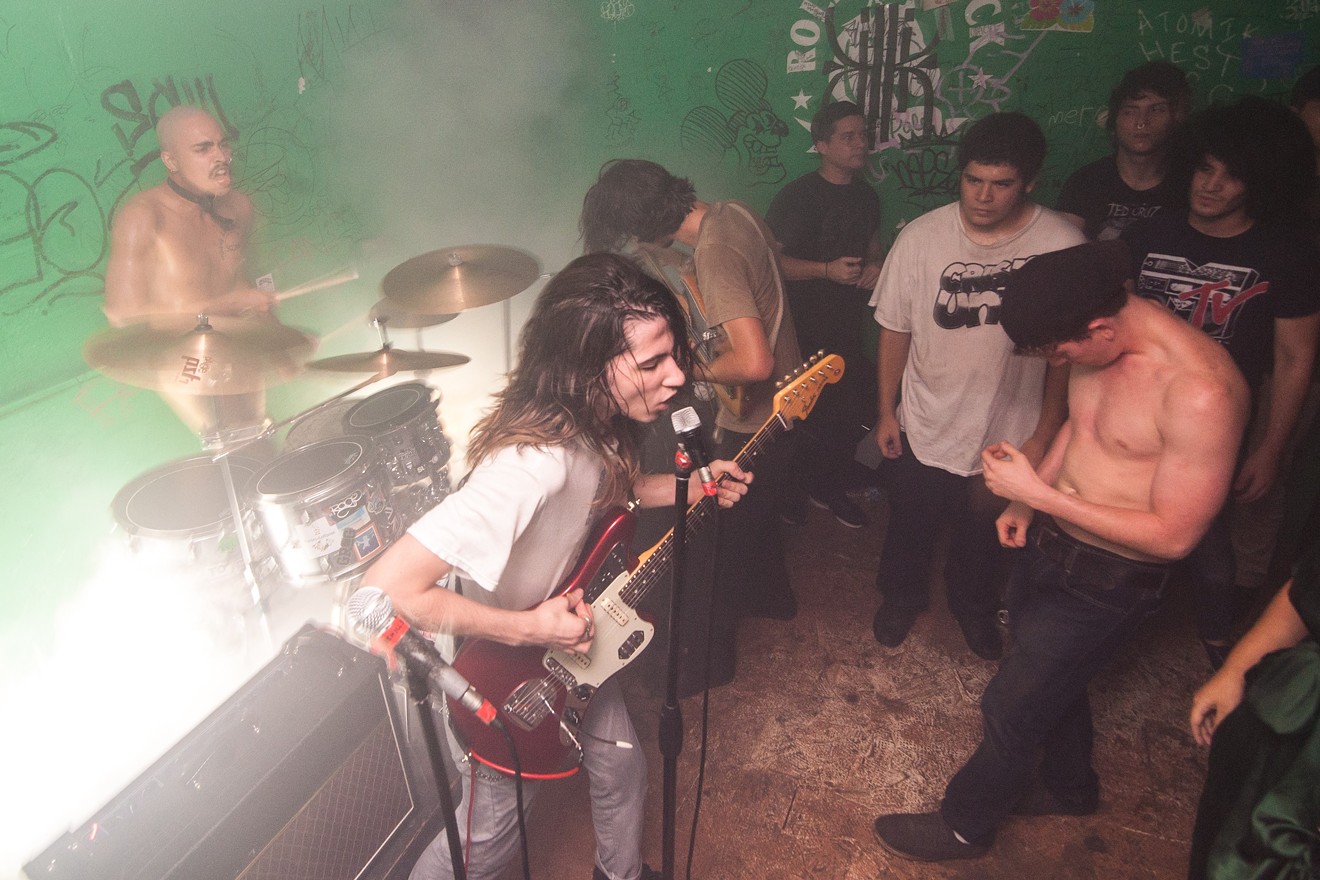“A lot of people think of Miami and they just think about DJs or electronic music,” says Ian Michael, entertainment booker at Miami’s iconic Churchill’s Pub. “They just think about partying and nightlife and they don’t understand that there’s a really cool, vibrant music scene here with rock, jazz, punk, metal, noise, hip-hop.”
Miami’s underground music scene is alive and thriving. Despite venues like Tobacco Road, Bardot, and Grand Central going the way of truth and integrity in politics, others like Churchill’s rock on.
Oski Gonzalez, with the band the Oski Foundation, is a music promoter who has worked with Churchill’s, Hard Rock Café, Femme Fest, and the now-defunct Tobacco Road.
He says places like Churchill’s have survived because they take chances. “Churchill’s is reinventing itself every day,” he says. “Music is changing. It’s going from when rock was dominant; now it’s more the R&B and urban sound that’s dominant.”
And it's not just a Miami trend. “The rock music, some of it is fading away,” says Gonzalez. “What’s keeping it relevant is making a hybrid of it. Look at Maroon 5 — they’re making songs with Cardi B.”
Gonzalez says bands that, like Maroon 5, can nail a variety of styles are more likely to survive the ever-evolving music scene.
“You expose a rapper to a metal crowd and metal to a rapper crowd,” Gonzalez says. “Everyone likes Snoop Dogg, everyone likes Metallica. If the music is good, the crowd is going to receive it if you’re being good and real and true.”
Churchill’s booker, Michael, couldn’t agree more. One of the bands he’s looking forward to in 2019, the Slackers, is a hybrid of styles. “Slackers is sort of a mix of ska, rocksteady, reggae, rock, and jazz all fused together,” he says.
Churchill’s is also home to the International Noise Conference, a five-day event that has grown so popular it now features over 100 acts. While Churchill’s has long been a mecca for punk, noise represents the kind of risks that keep the club relevant as music styles change and evolve.
“Noise music is meant to challenge you, get you out of your comfort zone,” Michael says. “These people are using instruments to try to come up with new ways to produce the most interesting sounds and then also make it the coolest to watch.”
Like wingsuit flying is
Enter Rat Bastard, Miami’s undisputed king of noise and producer of the festival. “Don’t insult your audience. Challenge them,” he tells musicians. “Audiences will listen to the weirdest shit if you give them a chance.”
Rat Bastard, whose given name is Frank Falestra, walks the talk, having made a name for himself in popular, offbeat groups like Laundry Room Squelchers and To Live and Shave in L.A.
Falestra says venues, not bands, are the most important part of any music scene, and those that survive understand the importance of earning loyal, local patrons.
“It was really getting scary for a while,” Eric Garcia, promoter and musician with the band Juke, says of the loss of some of Miami’s iconic small venues.
He says the success of Churchill’s, the expansion of Gramps, and the advent of new venues like Las Rosas (whose live shows are already drawing large crowds) give him hope for the future of small clubs in Miami.
He credits South Florida’s cultural and racial diversity with keeping the music scene vibrant. “You’ll get a Costa Rican and a Jamaican, and they’ll meet up with a white kid and then a Cuban kid and start a band,” Garcia says. “It makes for some really cool bands.”
If there's one thing on which Michael, Gonzalez, Falestra, and Garcia all agree, it's that 2019 will be a great year for live music in Miami.
“We’re so far south, and it’s a long drive down and back, but I’ve started to see more people willing to come down,” Michael says of the touring bands making their way to Churchill’s. “We’re getting two or three headliners touring together where they used to just be separate.”
With the growing popularity of techno, electronic, and synthesized music, the dingy, warehouse-turned-club might just be the archetype that newer underground venues would do well to emulate. Miami certainly has the bands to sustain them, and we love our music live.
“That’s what makes Miami better than New York, better than San Francisco, and we blow away L.A.,” says Falestra. “All the cities are all jealous that we have this. They do not have the music scene that we have down here. It does not exist.”













